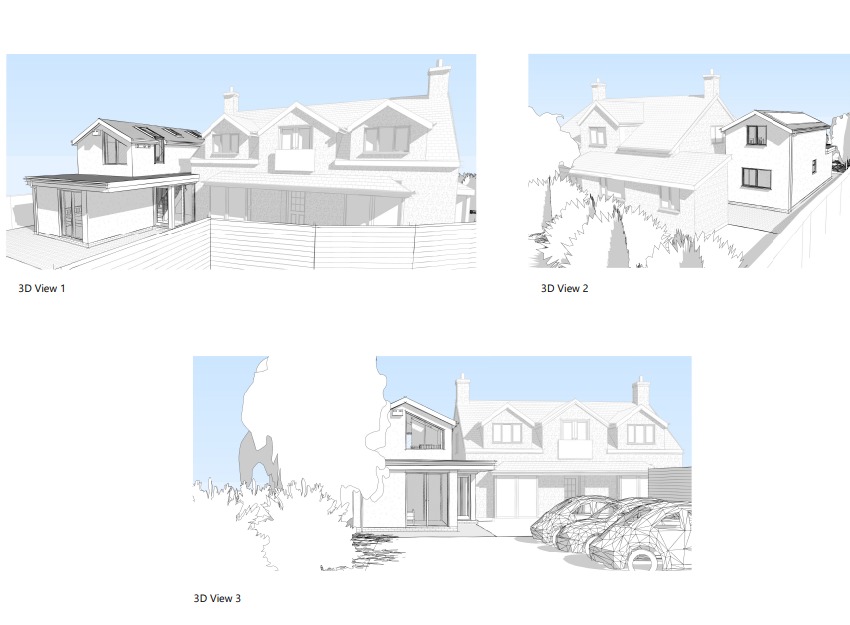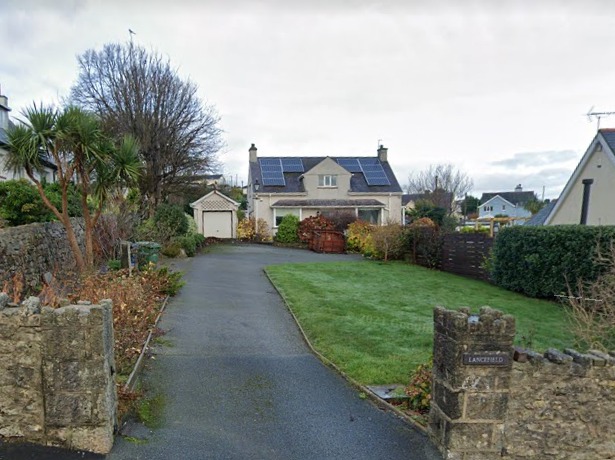FLOODING, climate change and the impact of “second and third homes” were among the issues raised during a planning row over a seaside village home. Anglesey Council planners were discussing for the second time whether to grant permission for work at a half-a-million pound home on Ffordd Cynlas, Benllech which is close to a river and waterfall.
They had received a full application for the demolition of an existing garage with the erection of a two-storey annexe at the property called Lancefield. The council’s planning and orders committee had initially refused the application against the planning officer’s recommendation, on July 5.
But it was finally approved, in accordance with his recommendations, subject to conditions, on July 26. The application was made by Steven Lomas through the agent Sion Ellis.
A family would be relocating to the home and the annexe would be used by elderly parents, the plans stated. The scheme was initially turned down due to being within the flood zone, over development of the site, not being “in keeping” with the residential street and for impact of amenities of neighbouring properties due to overlooking.
The plans had been removed and resubmitted. Planning officer Rhys Jones said the site was within flood zones. But as the plans involved the removal of an existing garage just replacing it with an annexe, it was considered that it would “not create any additional risk of flooding”.

“The NRW (National Resources Wales) does not submit observations on flood risk, when consulted on householder applications, unless the proposal has a direct impact on a watercourse” he said.
This plan “does not impede access to flood defences, it does not create cumulative impact on flood storage capacity, these are not considered valid reasons to refuse” he said.
He added that the NRW the “experts in the field,” had not raised concerns and he recommended approving the scheme. The property was ‘in keeping,’ as there was no particular style in the area and it “complied with policy.”
The developers “had listened to neighbours,” plans had been set further back and attached to the main dwelling. It was a large plot, not considered “an over-development” nor having impact on amenities of neighbouring properties.
But the local councillor Ieuan Williams, who had visited the site, said: “I could see the river running behind the property close to the back door.”
He also accused the developer of doing “un-authorised work down the river. NRW did visit the site on Monday to meet them, and they did not turn up,” he said.
“You are not supposed to do work on a water course without permission from NRW,” he said. The wall on the left of the access, which was “not in the plans” had also been removed he claimed.
Citing policy, he said it’s “clear if you are in a C3 flood zone you are not suppose to build”. He highlighted climate change, which was happening “quickly “saying we must consider what is happening in the natural world and the possibility of flooding.” A lot of neighbours had contacted him, he added, to say “you should stop changing the form of Benllech.”
He questioned whether the developers and architect had consulted with neighbours on the street and made reference to the “affordability” of property, previously raised at the meeting by cllr Margaret Murley.
“There is affordability to consider, like Margaret says. One of the main risks the LDP talks about is the building of second homes. I did say at the last meeting, this one is a third home. The owner has just developed a third home on a residential estate, it was just put up for sale for nearly half a million pounds,” he claimed.
But the planning officer said: “In terms of second or third homes, it was not relevant” to the decision.
As planners, “We look at land use, design, and the impact of neighbouring amenities, the fact that it is a second or third, or whatever use home, that has no bearing on this application,” he said.
In terms of flooding and the river, if any unauthorised work had taken place it would be dealt with “outside of the planning system” he added. He argued that the planning process itself had given neighbours an “opportunity” to consult.
Cllr Dafydd Roberts felt the scheme “did overlook” neighbours. He proposed rejecting the application, seconded by Cllr Geraint Bebb, gaining four votes.
But Cllr Jeff Evans “failed to see any adverse effects.” Cllr Bob Llewelyn Jones agreed, although advised use of signage at the property entrance. He proposed approval, seconded by Cllr Bob Llewelyn Jones, which achieved five votes, and the application was permitted.



















